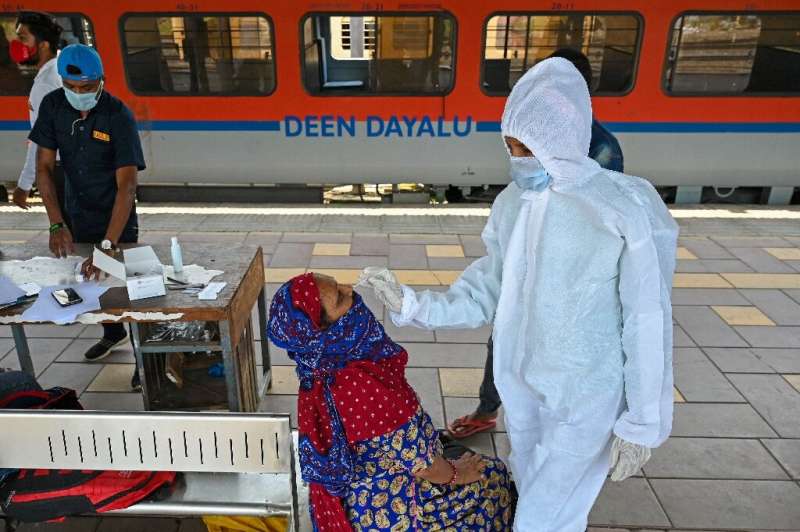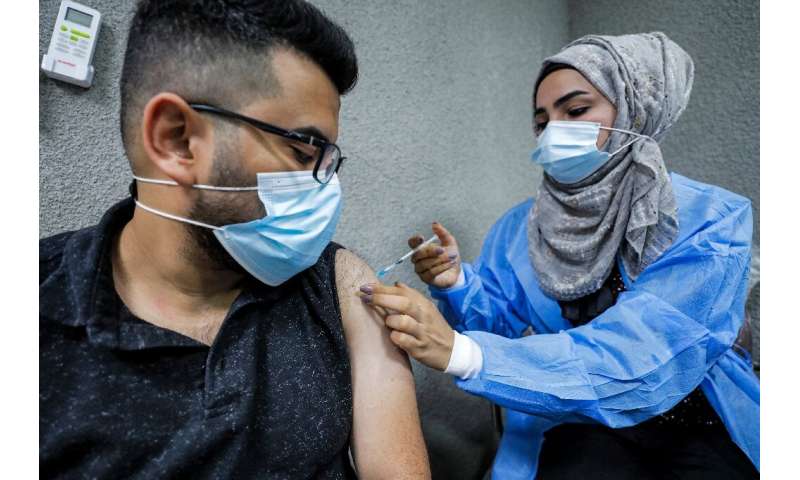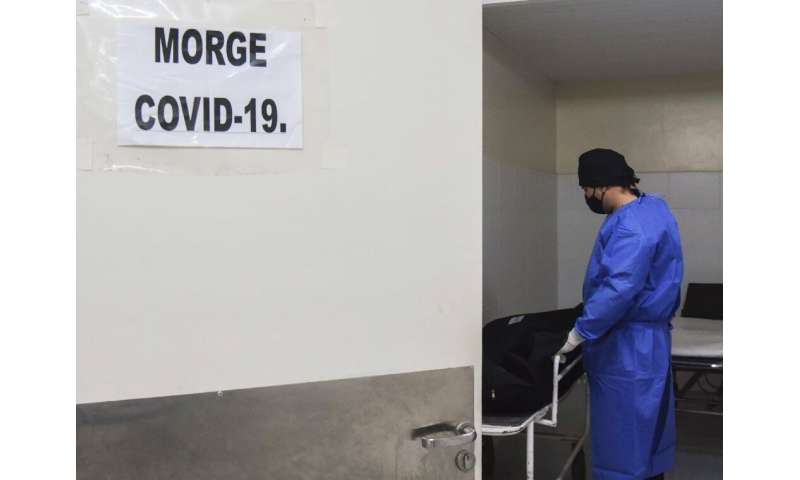
The EU said Wednesday it would get 50 million Pfizer vaccine doses earlier than expected, as rival drugmaker AstraZeneca faced a fresh setback after Denmark banned its use over blood clot links.
The news comes after Johnson & Johnson said it would delay its European rollout, a major hit for the continent’s beleaguered immunisation campaign as several countries battle rising caseloads.
The vaccine setbacks threaten to dampen hopes that immunisations will allow countries to emerge from the pandemic that has now killed close to three million people and ravaged the global economy.
But it was not all bad news in Europe, which will soon receive 50 million doses of the BioNTech/Pfizer vaccine initially expected at the end of this year.
The doses will now be delivered in the second quarter of this year, and will start arriving as soon as this month.
EU Commission chief Ursula von der Leyen said “there are still many factors that can disrupt the planned delivery schedules of vaccines”, referring to the J&J delay.
“It is therefore important to act swiftly, anticipate and adjust whenever it is possible.”
More than 820 million doses of vaccine have now been administered globally, but with demand far outstripping supply, countries are scrambling to secure much-needed jabs.

The race to secure vaccines has sparked diplomatic rows, notably between the European Union and the UK after the bloc accused London of hoarding jabs.
But Australia has also accused the EU of falling short on promised jabs. Canberra’s trade minister will travel to Europe this week for talks with his counterparts in Germany, France and Brussels about vaccine exports.
‘Third wave is upon us’
Johnson & Johnson said it would put off its European deliveries over reports of rare blood clots among people who had received the shot.
US health regulators also recommended pausing its use after six reported cases of clots—among more than 6.8 million J&J doses administered in the US.
The European Medicines Agency (EMA) said Wednesday it would make a recommendation on the safety of the J&J jab next week after evaluating clot links.
AstraZeneca has faced similar setbacks, with many countries now limiting its use to older people following isolated cases blood clots among younger populations, some fatal.

Denmark said Wednesday it would stop using it altogether—a European first—despite assurances from the EMA and the World Health Organization that side effects far outweigh possible risks.
The melee over vaccines comes as several countries, from Germany to India to Turkey, battle a worrying spike in cases.
In some places, it is no longer just the elderly who are crowding into overrun hospitals.
German doctors said they are treating an increasing number of young people as new variants sweep the country.
“The third wave is clearly upon us,” said Thomas Marx, the medical director at the Bavarian hospital in Freising.
Most Covid patients are now between 40 and 60, and are badly hit by the virus, he told AFP.
“They often have to be intubated and then face a long fight with the virus.”

River Ganges infections
In India more than 1,000 people tested positive for the virus after bathing in the River Ganges for the world’s biggest religious festival.
A huge crowd of worshippers packed the river’s banks to take a dip in the waters as part of a bathing ritual—despite soaring virus cases in the country.
“Our faith is the biggest thing for us. It is because of that strong belief that so many people have come here to take a dip in Ganga,” Siddharth Chakrapani, a member of one of the Kumbh Mela organising committees, told AFP.
“They believe that Maa (mother) Ganga will save them from this pandemic.”
In Turkey officials imposed new restrictions including a tougher overnight curfew, while in Bangladesh police patrolled the capital as a strict nationwide lockdown was rolled out.
Europe passed a million Covid deaths this week, with many countries from France to Italy and Spain still facing some form of virus restrictions after the continent’s sputtering vaccine rollout.

But in Belgium, cafes and restaurants got the greenlight to open their terraces from May 8 after a slight easing of cases there. Swiss officials also announced that bars and restaurants and some leisure facilities could reopen next Monday.
In Japan, a spike in Covid cases forced a section of the Tokyo Olympics torch relay to be pulled from public roads, fuelling fears about whether the postponed Games should go ahead with just 100 days to go before the scheduled opening.
International Olympic Committee vice president John Coates said Wednesday cancellation is “certainly not” on the table.
Source: Read Full Article



